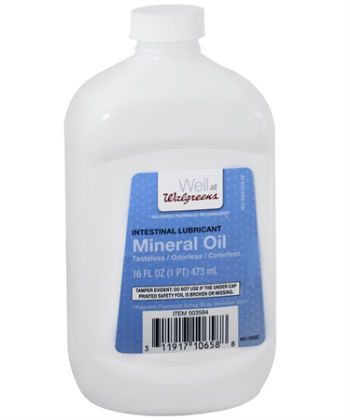“Stay away from mineral oil”
Whether you’re newly natural or a textured hair vet, this is one piece of advice that continues to propagate across blogs, YouTube videos, books, social media, natural hair product websites, and more.
But why? What’s so bad about mineral oil? Let’s explore some commonly held beliefs about the taboo ingredient, and whether or not they are rooted in truth.
Is Mineral Oil Bad For Hair?
Rumor #1
Mineral oil is contaminated with carcinogens and other harmful chemicals.
[prodmod]Verdict: FALSE
We want natural oils to be virgin/unrefined and extracted without eliminating the vitamins and nutritive benefits, mineral oil is highly refined and purified to removed any crude ingredients and toxins. For what it’s worth, cosmetic-grade mineral oil processing is regulated by the FDA and other international regulatory agencies. No scientific data supports cosmetic grade mineral oil causes cancer. The rumored link between cancer and mineral oil likely stems from older studies surrounding the impact of aerosolized mineral oil on laboratory animals. Cosmetic grade is highly regulated and refined.
[prodmod]Rumor #2
Mineral oil dries the hair out.
[prodmod]Verdict: FALSE
Mineral oil–just like olive oil, shea butter, sweet almond oil, grapeseed oil, and others–is an occlusive. It’s designed to create a waterproof barrier that does not allow water to penetrate or escape. Just like with any oil, if your hair is properly hydrated, sealing will lock it in. If you use mineral oil, or any other oil improperly, the end result will be dry feeling hair. But don’t blame mineral oil, it’s not the oil’s fault.
[prodmod]Verdict: TRUE and FALSE
This rumor hold some merit, but not in the way that you might think. Mineral oil typically is not the ROOT cause of scalp irritation, flaking, and dryness. More than likely, your scalp is responding to irritants within a hair product (like certain preservatives and essential oils”>, or fungal growth. Again, mineral oil isn’t generally the cause of dry, flaky, or irritated scalp. However, it can exacerbate it and make it worse by clogging the scalp follicles, often leading us to believe that mineral oil is at fault.
One Benefit
Now that we’ve addressed the three major concerns surrounding mineral oil, is there any real actual danger associated with incorporating it into your regimen? Not really.
Granted, mineral oil does not possess any nutritive properties like coconut, argan, or avocado oil–but the advantage it does have over more of the natural oils is that it is the most effective at sealing hair, period. Users of mineral oil and petroleum-based products report that their hair stays moisturized twice as long or more than with natural oils.
Stripping the Hair
It requires more than co-washing and sulfate-free shampoos to get it off of the hair completely. To remove mineral oil from the hair, harsh cleansers like sodium lauryl sulfate (a big no-no for the Curly Girl Method crew”> are required. This is perhaps where most of the disdain for mineral oil truly comes from. It creates a vicious cycle of stripping and re-moisturizing the hair on a regular basis.
Bloggers like Curly Nikki have even shared their experience with the likes of Dax and Blue Magic, and plenty of others have enjoyed returning to products from their childhood. At the end of the day, the decision to return to mineral oil and petroleum-based products is entirely your own.









